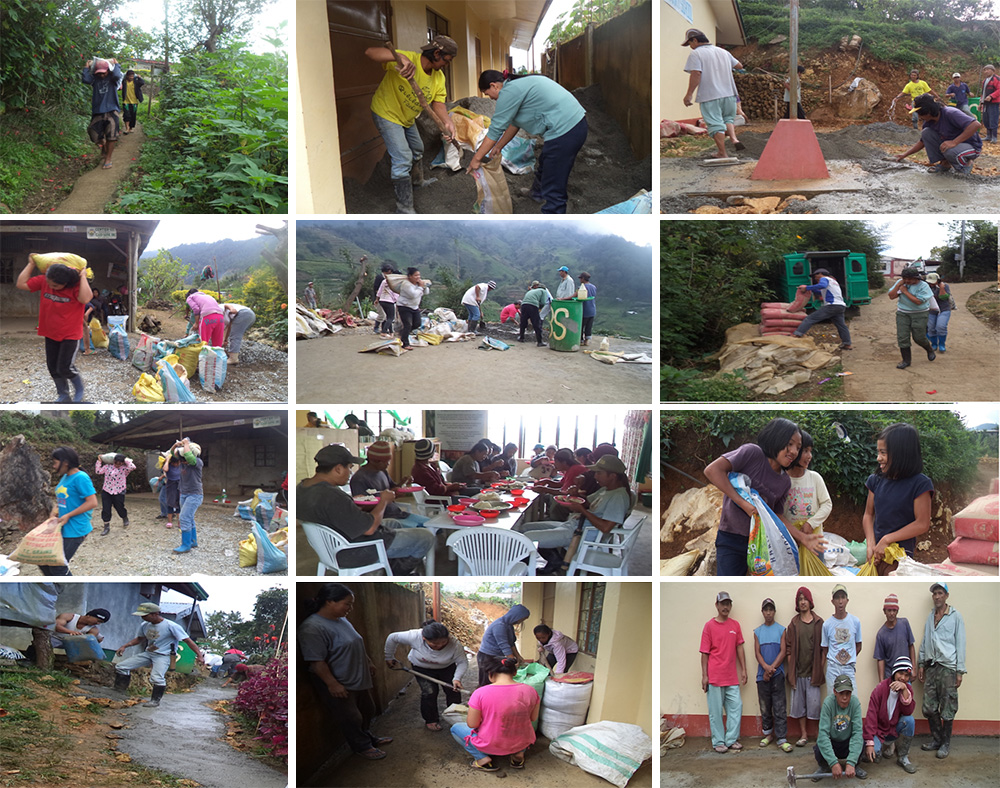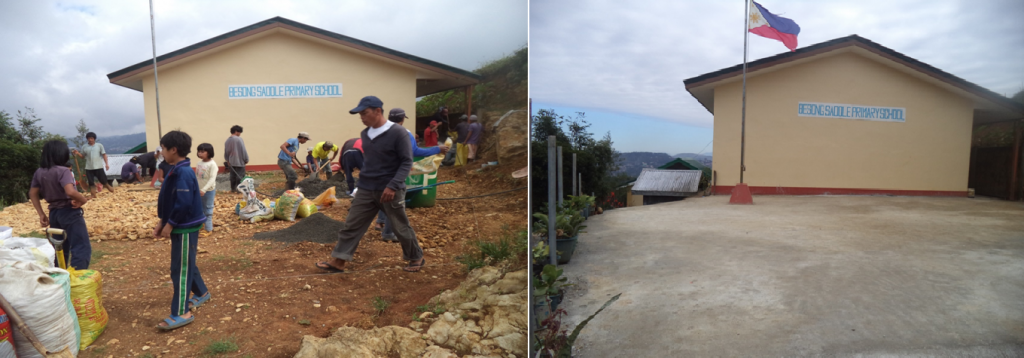The biggest challenge for Felomina Taplin, Teacher-In-Charge at Besong-Saddle Primary School in the municipality of Tuba, Benguet, was to raise the performance of her pupils by providing a more conducive learning environment for them. The school governance workshop conducted by Synergeia Foundation under USAID’s Education Governance Effectiveness (EdGE) program taught her to engage the community to help with the task and how to do it effectively.
Taplin’s school was unpaved and surrounded by dirt such that children were not allowed to venture out during breaks, especially when it rained and the soil became muddy. “The children got bored and it affected their enthusiasm during class,” she relates. Taplin or Ma’am Fely had been a classroom teacher until she was given charge of the entire school comprising mostly indigenous children from the agriculturally-dependent municipality. “I suddenly had to do everything. This is why the training came at such a good time,” Ma’am Fely says.
During the EdGE workshop held on January 27-29, 2014 in Baguio City, Ma’am Fely learned that solving tasks a step at a time moves one closer to achieving bigger goals. She considered all the possible reasons that affect her pupils’ learning abilities and decided that many of the bigger problems could not be solved on the short term. The dirt-filled surroundings that dampen children’s mood could possibly be addressed right away. However, she realized she could not do it alone. She learned from EdGE that presenting a systematic plan to the community would gain her the support needed for the project. “I was able to utilize my learning from the seminar on how to gain the support of stakeholders in implementing projects,” she says.
“There will always be problems but knowing that there are people willing to help motivates us to do our best,” says Felomina Taplin.
She called a meeting with the PTA and involved concerned citizens even if they are not parents. She approached potential donors and called for volunteers by posting on community billboards and waiting sheds. “They all came,” Taplin enthusiastically said over the phone when she reported the activity. Many volunteers, men and women, parents and non-parents alike, offered to provide labor. Even children came to help in their own way. Private donors sponsored materials and food for the laborers. The community worked on the project together for four days on Oct. 28, Nov. 4-6, 2014.

Community volunteers comprising parents, non-parents, men, women and children worked together to provide a conducive learning environment for the children of Besong Saddle Primary School in Tuba, Benguet
Now that the children are much more inclined to focus on their studies after the significant improvement on their school, Ma’am Fely’s next task is to make sure it translates to better learning outcomes. “There will always be problems but knowing that there are people willing to help motivates us to do our best,” says Ma’am Fely.





